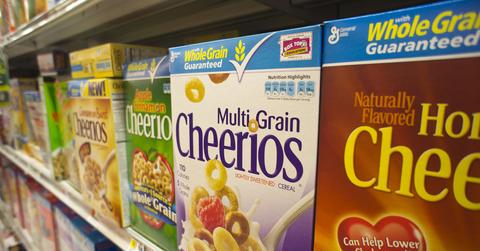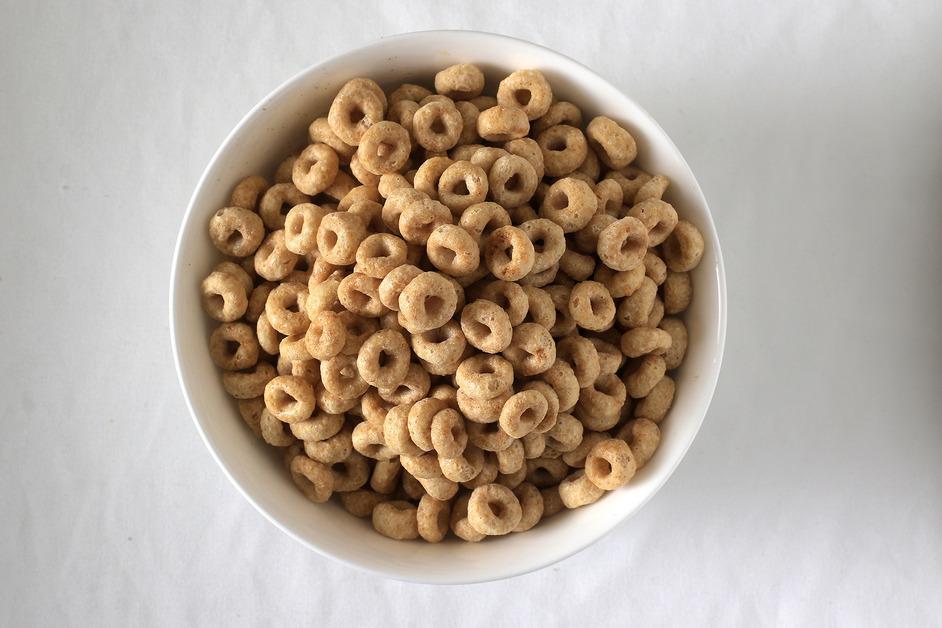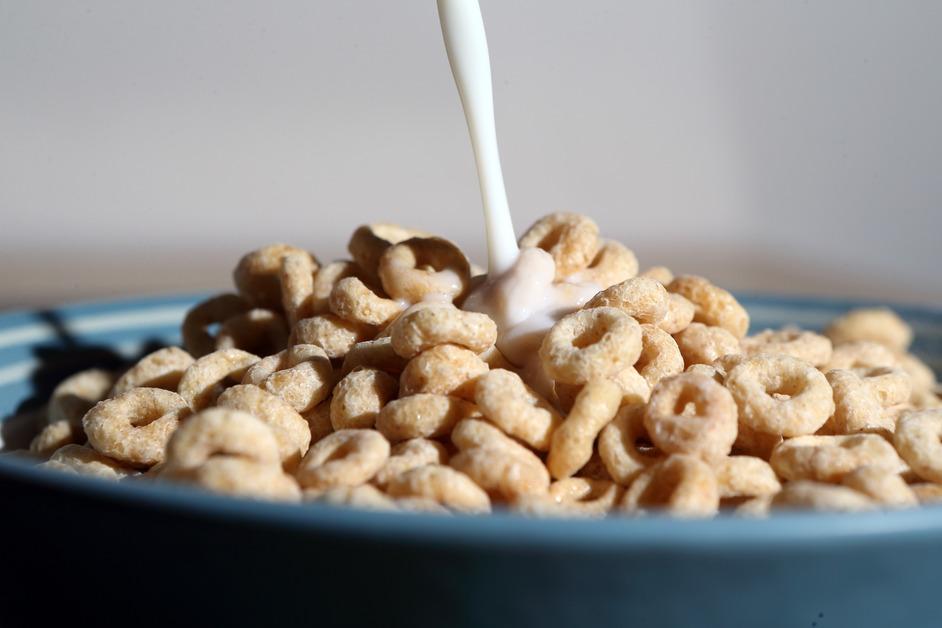Cheerios Is Facing a Class Action Lawsuit for Alleged Pesticide Contamination
Pouring your morning bowl of cereal? There could be a serving of pesticide in there as well, according to a lawsuit.
Published March 22 2024, 11:48 a.m. ET

After a dangerous pesticide was detected in Cheerios-brand cereals, a class action lawsuit was filed against General Mills Inc., in California. Chlormequat, the chemical found in Cheerios and other oat-based products, raised major concern after studies showed that exposure can harm fetal growth and reproductive health in animals and humans.
Many experts worry about the potential effects of chlormequat exposure on children's health. Therefore, the chemical's presence in Cheerios, a classic childhood cereal, is ringing many alarm bells, and has people asking questions. So, here are the details of the Cheerios class action lawsuit.

What is the Cheerios class action lawsuit?
In early 2024, plaintiffs Katrina and Benjamin Necaise sued General Mills Inc. in a California class action lawsuit. They claim Cheerios, Honey Nut Cheerios, Frosted Cheerios, and Oat Crunch Oats N’ Honey Cheerios contain dangerous levels of pesticides, per Top Class Actions.
The plaintiffs alleged that independent lab testing found unsafe amounts of chlormequat chloride, an agricultural pesticide. According to the Environmental Working Group (EWG), there are many concerns about how chlormequat chloride can affect children's health. Studies on animals have revealed that the pesticide can negatively impact the reproductive system, and even affect fetal growth.

According to Top Class Actions, the plaintiffs claimed that General Mills Inc. did not warn of the chlormequat in its Cheerios products; they believe that if customers had been warned of the chemical's presence, some may not have bought the cereal. By not revealing this critical information, the case argues General Mills violated California's Consumer Legal Remedies Act.
For those of you, like me, who have eaten Cheerios since childhood you may be wondering — why hasn't this always been an issue? Well, chlormequat is actually not even allowed to be sprayed on food crops in the U.S. In 2018, the Trump Administration approved a small amount of the chemical on imported oat products. The allowable level then increased in 2020, per the EWG.
Even in these small doses, the effects of chlormequat are concerning. According to Class Action, the chemical is used in crops as a growth hormone blocker, keeping the plants from getting too large to improve the harvesting efficiency. However, according to the lawsuit, ingesting chlormequat can affect human and animal development as well, possibly by hindering puberty, fertility, and healthy growth of the fetus, per Top Class Actions.

Cheerios are not the only oat-based products with chlormequat.
Cheerios-branded cereals are not the only food products that have been found to contain chlormequat. Days before the lawsuit was brought against Cheerios, Quaker Oats (a popular oatmeal, granola, flour, and cereal brand), also received a class action over the amounts of chlormequat in its products, per Top Class Actions.
In fact, the EWG has identified chlormequat in 92 percent of oat-based food products tested in May 2023. What's worse, the EWG tested the urine of 96 people between 2017 and 2023 and found chlormequat in 77 samples. It was also noted that detections were more frequent for samples taken closer to 2023, which suggested that exposure could be increasing.
To avoid exposure to chlormequat, the solution is fairly simple: buy products made with organic oats, as organic crops are not sprayed with pesticides.